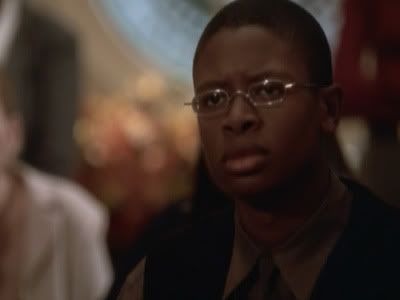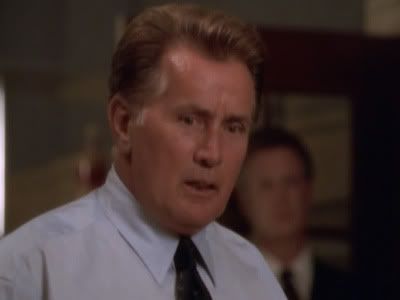

Student: Sir?
President Bartlett: Yeah
Student: Do you consider yourself a man of principle?
President Bartlett: I try to be
Student: Well... Don't you consider, I mean I know they're our enemy, but don't you consider there's something noble about being a martyr?
President Bartlett: A martyr would rather suffer death at the hands of an oppressor than renounce his beliefs. Killing yourself and innocent people to make a point is sick, twisted, brutal, dumb-ass murder.
I recently rewatched the West Wing episode produced just after the September 11 attacks in 2001. The episode is called Isaac and Ishmael. This scene, where a student quizzes President Bartlett on martyrdom, has really got me thinking. What does it mean to be a martyr? What is the 'proper' context in which to die for your faith? Is President Bartlett right?
Last year I went to a talk by Bishop Josiah A. Idowu-Fearon who was visiting Australia at the time. Bishop Fearon oversees the Diocese of Kanduna in Nigeria. It straddles the middle of country, the very volatile part where the predominantly Muslim north meets the predominately Christian South. It's a dangerous place. Religious tensions are mixed up with political and economic power, and are regularly expressed with violent physical attacks.
Speaking to a small audience of mainly Christian workers in Australia last year, Josiah Fearon talked about the difficulties of leading the church in a climate like this. Not only does the church feel threatened by reactive Muslims, but many members of the church believe that it is their duty to defend the honour of the church through avenging other injured Christians or even attacking Muslims who slander the church. Fearon clearly articulated his own stance: Christians follow a crucified Lord, who was insulted, oppressed, persecuted and killed. He told his followers to turn the other cheek and warned his followers that they would be abused just like him. Christians who feel like they must defend the honour of their religion through further violence, or even avenge the injury or death of family, are not following Jesus as they do these things.
Josiah Fearon's attitudes have made him the target of a few assassination attempts, not just by Muslim extremists but also by Christian extremists who think he is too soft in his approach. But I don't think he is being soft. I think it would much harder to take persecution 'lying down' than fighting back.
Although they speak about slightly different things, I'm inclined to think that Josiah Fearon would agree with Jed Bartlett on martyrdom, and Jed Bartlett would agree with Josiah Fearon on persecution (even though Jed Bartlett is fictional...). Martyrs die for their faith, but they don't kill innocent people. Persecution means enduring suffering and humiliation without ever seeking revenge, and Christians must never initiate violence.
Do you think this is the correct way to view things? Issues of violent persecution and martyrdom don't really come up in contemporary Australian society, but they definitely do right now in other places of the world. This week, 13 people were killed in a religious attack on a village outside Jos, one of the larger towns in Josiah Fearon's diocese. Most of them were women and children. Is it fair to say that the church should sit by and watch people get abused and killed? If you were a Christian leader, how would you seek justice if your local community was governed by sharia law? Would you take justice into your own hands?
Repay no one evil for evil, but give thought to do what is honourable in the sight of all.If possible, so far as it depends on you, live peaceably with all. Beloved, never avenge yourselves, but leave it to the wrath of God, for it is written: "'vengeance is mine, I will repay', says the Lord". To the contrary, "if your enemy is hungry, feed him; if he is thirsty, give hims something to drink; for by doing so you will heap burning coals on his head". Do not be overcome by evil, but overcome evil with good.
Romans 12:17-21
P.S. Did anyone notice that Josiah Fearon and Jed Bartlett have the same first name?
UPDATE from Matt: Last year at CMS I was involved in interviewing Josiah Fearon. You can watch the interview here.


